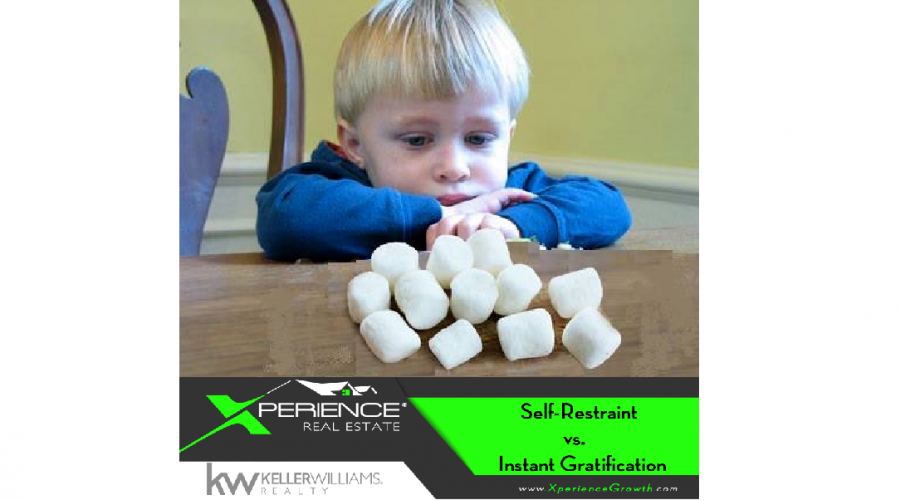
Psychologist Walter Mischel tempted 4-year old children with a marshmallow as an experiment to test one’s executive control.
The rules of the experiment:
-
Eat 1 marshmallow now or wait 15 minutes and get 2 marshmallows
Some of the 4-year old children resisted temptation of the marshmallow simply by distracting themselves. Others decided eating the marshmallow now was better than torturing themselves by staring at it for 15 minutes.
Results:
-
The children who resisted the lure of the marshmallow had higher scores on measures of executive control, particularly the reallocation of attention.
-
The children who waited out the full fifteen minutes did it by distracting themselves with tactics like pretend play, singing songs, or covering their eyes.
-
If a child just stared at the marshmallow, he/she was a goner (or more precisely, the marshmallow was).
What went into play:
1- The ability to voluntarily disengage our focus from an object of desire that powerfully grabs our attention
2- Resisting distraction, lets us keep our focus elsewhere—say, on fantasy play—rather than gravitating back to the marshmallow.
3- Allow us to keep our focus on a goal in the future, like the two marshmallows later.
Bottom line: Children can have the most economically privileged childhood, yet if they don’t master how to delay gratification in pursuit of their goals those early advantages may wash out in the course of life
Which child are you? So, decide. Which child are you? Are you the child who cannot wait 15 minutes to eat the marshmallow? Or are you the child who can distract themselves just long enough because you know that once the time is up, the reward will be better? Self-restraint is a skill that we should all take the time to learn. Do not miss out on an opportunity because you were simply impatient. Just because something good is in front of us doesn’t mean that there is something better just a little ways down the road. Be patient. Good things are coming.
